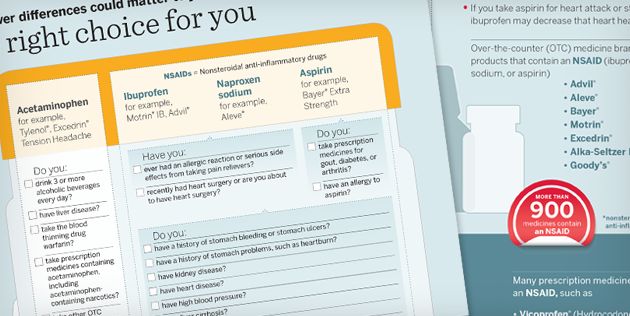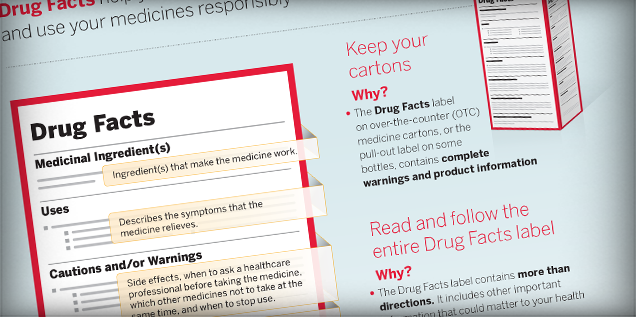Different OTC pain relievers have different doses, directions, and daily limits. To help ensure you’re using pain relievers appropriately, download and print these dosing charts for OTC NSAIDs and acetaminophen —and keep them wherever you store your medicines.
Click here to download adult dosing charts.
What you can do to use OTC pain relievers responsibly
Take ONLY 1 medicine that contains the same kind of medicinal ingredient at a time. Why?
If you take more than 1 medicine that contains an NSAID , it can increase your risk of stomach bleeding
If you take Aspirin® (daily low dose ASA – 81 – 325 mg) for daily preventive therapy, ibuprofen may decrease that heart health benefit
If you take more than 1 medicine that contains acetaminophen , it increases your chance of taking too much, and that could cause serious or potentially fatal liver damage
Check your medicines. Hundreds of over-the-counter (OTC) and prescription medicines contain the same kind of medicinal ingredient.
Remember: It is important to always read and follow the label . If you have any questions or are unsure which pain reliever may be appropriate for you, talk with your healthcare professional.
Get your pain reliever dose right. Why?
If you take more medicine than the label says, you may increase your chance of experiencing serious side effects. To use OTC pain relievers responsibly:
Take only the dose directed on the label
Wait the right amount of time between doses
NEVER take more than the daily limit
If your pain lasts more than 5 days, stop taking the medicine and see a healthcare professional. It’s possible that the problem may need more attention, or a different treatment approach may be needed.



